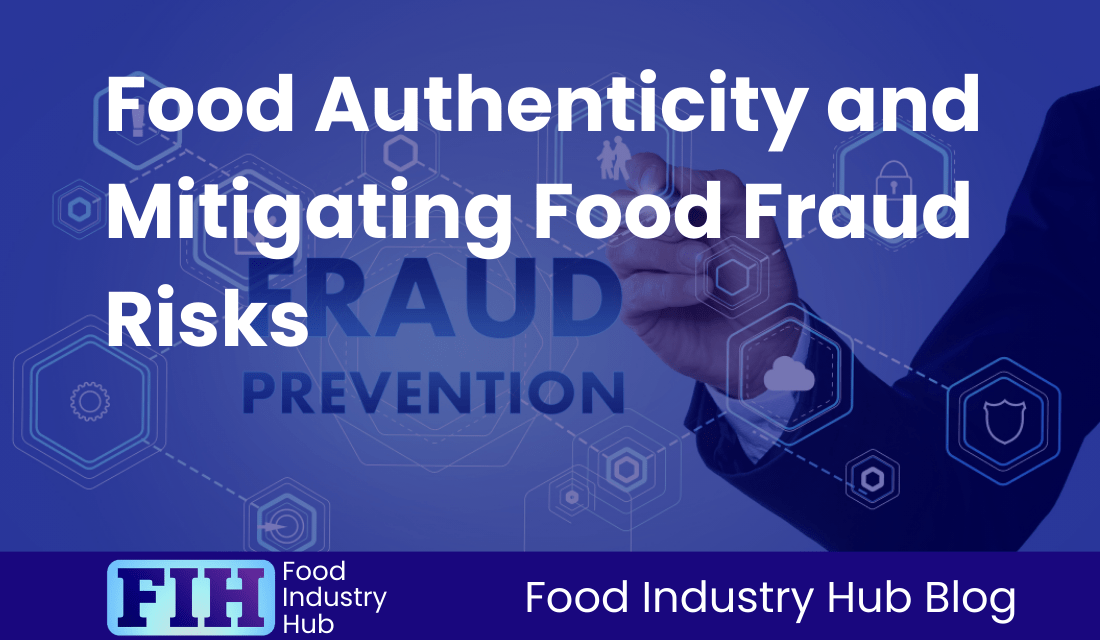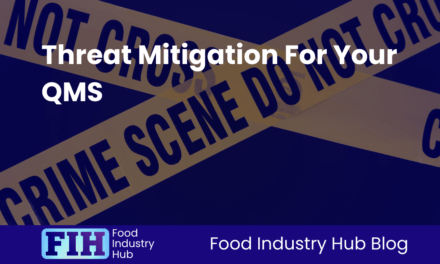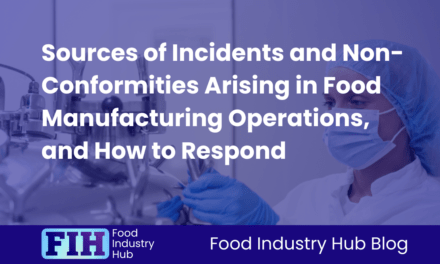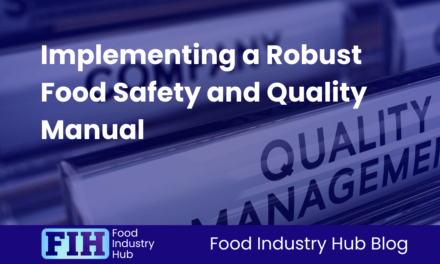Introduction
Substitution, adulteration, and fraud present a uniquely difficult set of authenticity risks for food manufacturers to manage for. Intentional malicious action is inherently challenging to detect and mitigate, because the malicious actor(s) make deliberate efforts to conceal the crime.
Risk assessment, analytical testing, and horizon scanning are the best tools available for fraud risk control, and this post is intended to support horizon scanning and food fraud risk awareness. We’ve brought together a range of resources for supply chain risk visibility, as well as tangentially related information providers such as Mintec Global Food Commodity Prices and the RASFF Database (of whose reports, only a fraction are authenticity-related). In this post, we’ll offer a little bit of guidance around food fraud risk awareness and monitoring for emerging supply chain risks.
As we dive into the topic, you may also like to check out The Food Industry Hub Signposting Service, which presents a broader collection of food industry resources than are included in the scope of this post.
You will also be interested to know that we offer software for food manufacturers – with management systems specially tailored to the food manufacturing industry.
The following is a selection of resources chosen for their value as food authenticity resources.
Horizon Scanning for Food Fraud
You can use the above selection of information providers to stay abreast of emerging risks.
By looking out for instances of food fraud across different marketplaces (with information published by regulatory bodies operating in different market jurisdictions), you can maintain a good awareness of at-risk food commodities, as well as any geographical trends. You can align this with known parameters about raw materials (composition, country of origin, country of manufacture), and form a risk profile for your business’ supply chain.
Simply reading the Monthly Food Fraud Summary Reports published by the European Commission can provide very useful insights into commodity risks.
Mintec Global Food Commodity Prices is often used as a tool for purchasers, but it can be usefully applied to food fraud risk assessments in identifying economic pressures that could influence the incidence of substitution, adulteration, and fraud.
Supply chain risk monitoring can significantly benefit food manufacturers in preventing food fraud. Food fraud is a serious concern in the food industry, involving the intentional deception or misrepresentation of food products for economic gain. Monitoring supply chain risks can help identify vulnerabilities and potential fraud points, enabling manufacturers to take proactive measures to mitigate these risks. Here’s how supply chain risk monitoring supports food fraud prevention:
Early Detection of Anomalies: Supply chain risk monitoring involves tracking various data points within the supply chain, including ingredient sources, transportation routes, and storage facilities. By analysing this data in real-time, manufacturers can identify unusual patterns or anomalies that may indicate potential fraud. For example, unexpected delays or changes in ingredient sources can raise red flags.
Supplier Verification: Monitoring the performance and reliability of suppliers is essential in food fraud prevention. Regularly assessing suppliers and their practices can help manufacturers ensure that they adhere to agreed-upon quality and safety standards. Any deviations or inconsistencies can be addressed promptly to prevent fraudulent activities.
Ingredient Traceability: With system such as RASFF implementing robust traceability systems, food manufacturers can track fraud risks according to the origin and movement of ingredients throughout the supply chain. This transparency makes it easier to verify the authenticity of ingredients and identify any unauthorised substitutions or adulterations.
Collaboration and Information Sharing: Sharing information and best practices with industry partners, regulatory agencies, and organisations dedicated to food fraud prevention can enhance a manufacturer’s ability to stay ahead of potential threats. Collaborative efforts can help identify emerging fraud trends and share insights on fraud prevention strategies.
Regulatory Compliance: Monitoring supply chain risks helps manufacturers ensure compliance with food safety and labelling regulations. Violations of these regulations can lead to fines and reputational damage, making it important to proactively address any compliance issues.
Brand Protection: Food fraud incidents can severely damage a manufacturer’s brand reputation. Supply chain risk monitoring allows companies to protect their brand by preventing fraud-related scandals and ensuring consistent product quality.
Cost Savings: Proactive monitoring and prevention of food fraud can save manufacturers significant costs associated with product recalls, legal battles, and reputational damage. Investing in prevention measures is often more cost-effective than dealing with the aftermath of a fraud incident.
Supply chain risk monitoring is a valuable tool for food manufacturers in preventing food fraud. It helps identify vulnerabilities, detect anomalies, and ensure the integrity of the supply chain. By proactively addressing potential risks, manufacturers can safeguard their products, protect their brands, and maintain consumer trust in the quality and authenticity of their food products.
The key benefit of monitoring supply chain risk exposure to food fraud is that it enables you to target mitigation activities – so when potential risks are identified, it should trigger a review of the associated risk assessment and may result in an amendment to the analytical sampling approach.
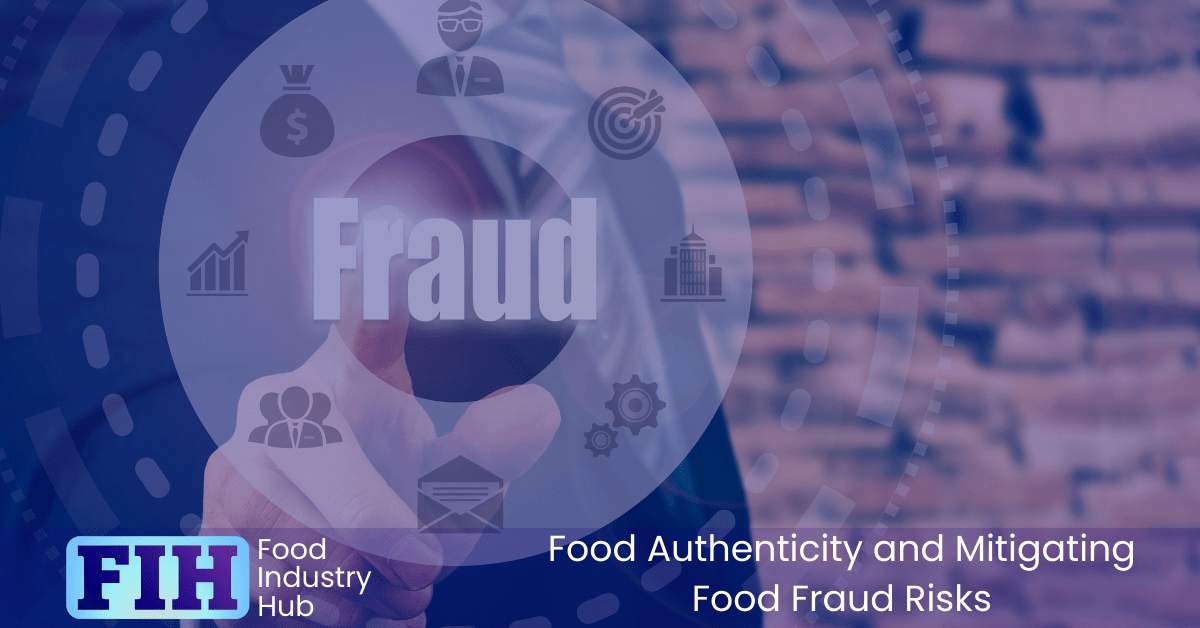
Sign-up for the Food Industry Hub Mail Service
We regularly produce new content for food industry professionals, and the Food Industry Hub Mail Service is the best way to stay up to date with the latest additions.
Signup today to be added to the Food Industry Hub mailing list.
Outcomes Of Risk Monitoring
Horizon scanning, a process of systematically monitoring and analysing emerging trends, risks, and developments, can provide valuable insights to inform supply chain risk assessments and sampling approaches for analytical testing the food industry. Here’s how the results of horizon scanning can be used to enhance these processes:
Identifying Emerging Risks:
A reported instance of food fraud may not necessarily apply to one of your suppliers directly, but if they process affected commodities or the raw material supply chain applicable to your suppliers is exposed to an elevated risk of food fraud, horizon scanning should feed data into your supply chain risk assessment. Remember, fraud risks have direct significance for the site’s HACCP risk assessment – so it’s vital to accurately gauge risk exposure to food fraud.
Targeted Sampling Strategy:
Analytical testing in supply chains often involves random sampling or routine testing based on historical data. Horizon scanning allows for a more targeted approach to sampling.
By identifying specific risks or vulnerabilities in advance, companies can adjust their sampling plans to focus on the areas most likely to be affected. For example, if a new food authenticity threat is identified through horizon scanning, sampling can prioritise products or suppliers most at risk.
Horizon scanning provides data and insights that can support data-driven decision-making in supply chain risk management. By incorporating these insights into the decision-making process, organisations can make more informed choices about where to focus resources and efforts.
Horizon scanning is a proactive approach to risk management that provides valuable insights for supply chain risk assessments and sampling approaches. By leveraging the information gained through horizon scanning, organisations can adapt their risk management strategies to address emerging threats, optimise their analytical testing efforts, and maintain the integrity of their supply chains.
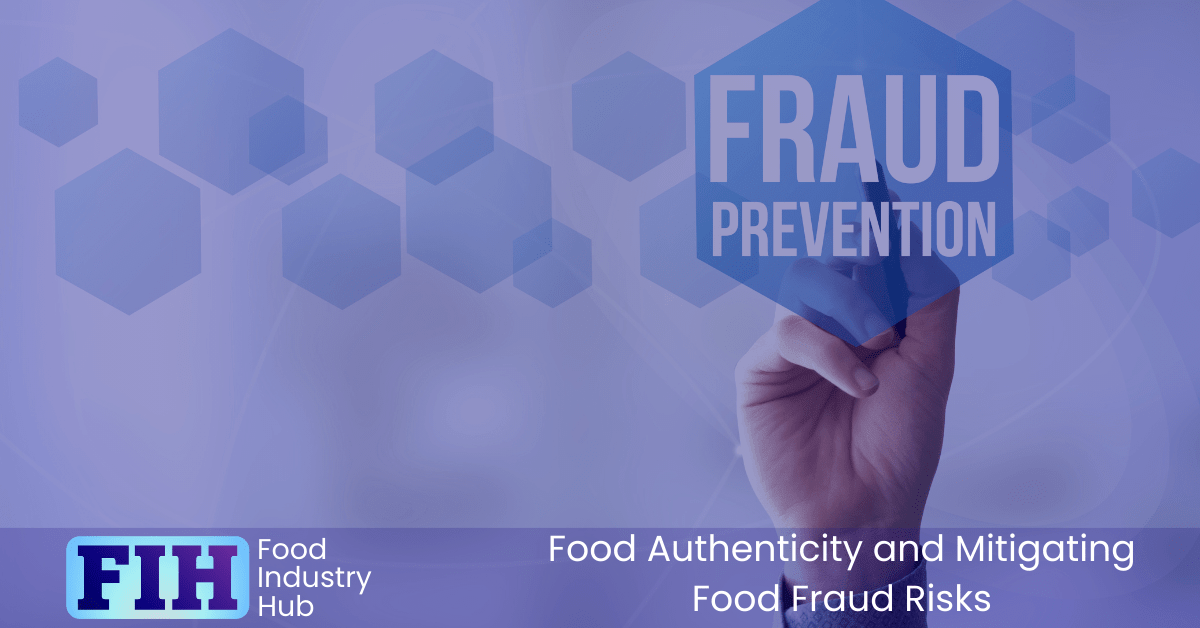
In Summary
Horizon scanning is a form of risk identification which allows food manufacturers to take targeted actions to reduce their exposure to food fraud.
Information yielded from horizon scanning should inform the supply chain risk assessment, and should be taken into account when establishing raw material sampling approaches.
While extremely challenging to eliminate, risks from food fraud can be reduced with an awareness of developing trends and a considered approach to analytical testing.
Further Resources
Food Industry Hub serves the food industry with a range of digital resources for the benefit of both commercial food manufacturers and food industry professionals.
For food manufacturers, we offer integrated management systems that give every user a direct interface with your QMS.
For food industry professionals, we provide an extensive signposting service in addition to informational content we hope you’ll find useful as you face new professional challenges. We have very ambitious plans to expand the range of services offered, and currently present informational content on management, safety and quality, and professional success.

